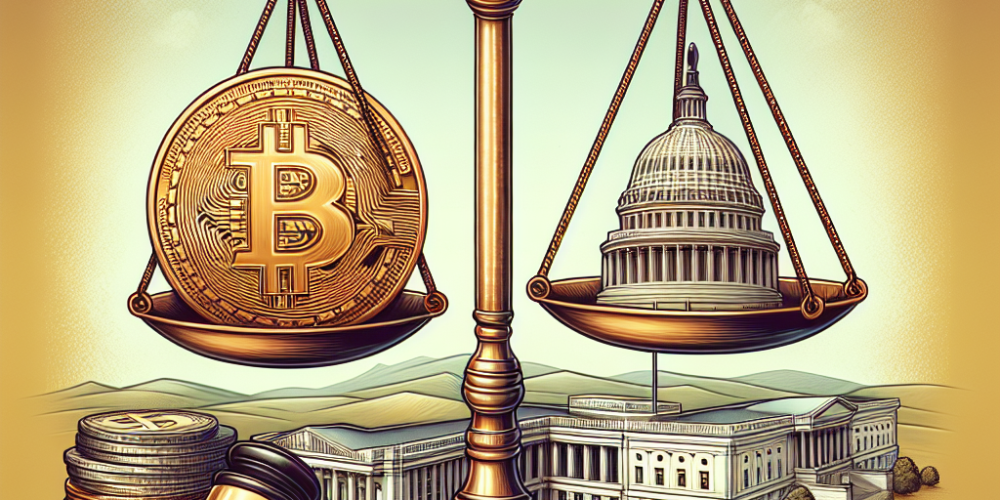In a significant development that could reshape the cryptocurrency landscape, U.S. lawmakers introduced a new bill aimed at tightening regulations around the trading, holding, and taxation of digital assets. The proposed legislation, unveiled yesterday, seeks to enhance transparency, security, and oversight of cryptocurrency transactions, in response to growing concerns about fraud, money laundering, and tax evasion.
The bill, known as the Digital Asset Security Act (DASA), is spearheaded by a bipartisan group of senators who argue that the increasing integration of cryptocurrencies into the mainstream financial system necessitates robust regulatory frameworks to protect consumers and maintain financial stability. The announcement has sent ripples throughout the cryptocurrency community, impacting market dynamics and sparking a debate on the future of digital currencies in the U.S.
Under the DASA, cryptocurrency exchanges and wallet providers would be required to obtain licenses and comply with stringent regulatory standards similar to those applied to traditional financial institutions. This includes enhanced customer identity verification, more diligent reporting of large transactions, and compliance with anti-money laundering (AML) standards.
Moreover, the legislation proposes that all cryptocurrency transactions above a certain threshold be reported to the Internal Revenue Service (IRS), aiming to curb tax evasion and ensure that gains from cryptocurrency investments are properly taxed. The proposal also outlines measures to increase collaboration between various federal agencies, including the Securities Exchange Commission (SEC), the Commodity Futures Trading Commission (CFTC), and the Financial Crimes Enforcement Network (FinCEN), to oversee and regulate the cryptocurrency market more effectively.
The news of the proposed regulations has had a mixed reception within the cryptocurrency community. Some industry leaders and investors view the legislative move as a necessary step towards legitimizing cryptocurrencies and fostering a safer investment environment. They argue that clearer regulations could lead to broader adoption of cryptocurrencies by removing uncertainties that have discouraged institutional investors.
However, others in the community express concerns that overly stringent regulations could stifle innovation and entrepreneurial initiatives in the burgeoning crypto sector. They fear that heavy-handed regulation may push cryptocurrency operations to more lenient jurisdictions, thereby isolating the U.S. from advancements in digital asset technologies.
The market reaction to the announcement was swift, with major cryptocurrencies like Bitcoin, Ethereum, and Ripple experiencing volatility. After an initial dip, prices began to stabilize as traders assimilated the potential implications of the proposed regulations on the cryptocurrency market.
Experts predict that the debate over the DASA will be intense and could have far-reaching implications for the future of digital assets in the U.S. The bill is expected to undergo rigorous scrutiny and debate in Congress in the coming months, with various stakeholders from the cryptocurrency industry, financial institutions, and regulatory bodies weighing in on the proposed measures.
The introduction of DASA marks a critical moment in the evolution of cryptocurrency regulation in the United States. As digital currencies become increasingly mainstream, the outcome of this legislative effort will likely influence not only the U.S. cryptocurrency market but also global attitudes and policies towards digital assets. Investors, entrepreneurs, and consumers alike are advised to stay informed about these developments, as the regulatory landscape for cryptocurrencies continues to evolve.




